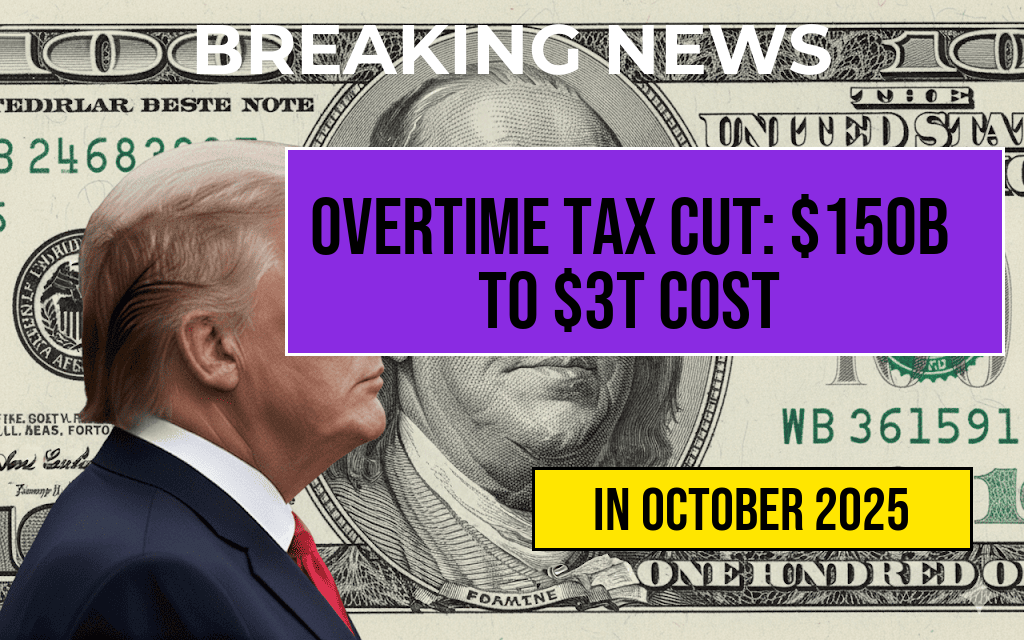The debate over the taxation of Social Security benefits has resurfaced, with proposals suggesting an end to these taxes could have significant financial implications for millions of retirees. New estimates indicate that eliminating taxes on Social Security benefits could lead to a cost of between $550 billion and $1.5 trillion over the next decade. Advocates argue that this change would provide relief to seniors struggling with rising living costs, while critics warn of the potential impact on federal revenue and Social Security’s long-term viability. As lawmakers consider various fiscal policies, the ramifications of such a change warrant thorough examination.
Understanding Taxation on Social Security Benefits
Currently, Social Security benefits are subject to federal income tax for individuals with combined incomes above certain thresholds. Specifically, if a single filer has a combined income between $25,000 and $34,000, they may be taxed on up to 50% of their benefits. For those earning above $34,000, up to 85% of benefits are taxable. Married couples face similar thresholds, with different income brackets that affect their tax obligations.
Financial Implications of Ending Taxes
The potential cost of abolishing taxes on Social Security benefits has been a point of contention among policymakers. According to estimates from the Congressional Budget Office, the financial impact of this policy change could range significantly, reflecting varying economic conditions and assumptions about taxpayer behavior.
| Scenario | Estimated Cost (10-Year) |
|---|---|
| Low Estimate | $550 billion |
| High Estimate | $1.5 trillion |
Arguments for Eliminating the Tax
- Increased Disposable Income: Removing taxes on Social Security benefits would provide retirees with more disposable income, potentially boosting local economies.
- Addressing Financial Strain: Many retirees rely heavily on Social Security as their primary source of income. As inflation continues to rise, these individuals face increasing financial pressure.
- Equity Considerations: Advocates argue that taxing Social Security benefits disproportionately affects lower-income retirees, exacerbating economic inequality among seniors.
Concerns about Federal Revenue
While the arguments for eliminating taxes on Social Security benefits are compelling, concerns about the loss of federal revenue are significant. Critics of the proposal argue that this tax serves as an important source of funding for the Social Security program itself. The loss of revenue could lead to increased deficits or necessitate cuts in other areas of the federal budget.
Impact on Social Security’s Financial Health
Social Security is already facing financial challenges, with the program projected to deplete its trust funds by 2034 if no changes are made. Eliminating taxes on benefits could exacerbate these issues, leading to a potential shortfall that would affect future retirees. As the population ages and the number of beneficiaries increases, maintaining the program’s solvency is a growing concern.
Public Opinion and Political Landscape
Public sentiment regarding the taxation of Social Security benefits is mixed. A recent survey indicated that a majority of Americans support eliminating these taxes, viewing it as a necessary step to support seniors. However, political divisions complicate the likelihood of such a policy change. With varying priorities among lawmakers, especially in an election year, the future of this proposal remains uncertain.
The Road Ahead
As discussions continue, the implications of ending taxes on Social Security benefits will remain a focal point for lawmakers and advocates. The potential financial relief for millions of seniors must be weighed against the broader economic consequences. Understanding the complexities of this issue is essential as the nation grapples with the challenges of an aging population and the sustainability of its social safety net.
For more insights into the financial aspects of Social Security, visit Forbes or read about the current status of the Social Security system on Social Security Administration.
Frequently Asked Questions
What are the potential financial impacts of ending taxes on Social Security benefits?
Ending taxes on Social Security benefits could result in a financial impact ranging from $550 billion to $1.5 trillion over the next decade, significantly affecting both retirees and government revenue.
Who would benefit the most from eliminating taxes on Social Security?
The primary beneficiaries would be retirees who rely on Social Security as a major part of their income, allowing them to keep more of their earnings without tax deductions.
How could ending taxes on Social Security benefits affect government revenue?
While it would increase disposable income for retirees, ending the tax could decrease government revenue significantly, impacting funding for various social programs and services.
What are the arguments for and against eliminating taxes on Social Security?
Proponents argue it would provide much-needed financial relief to retirees, while opponents claim it could exacerbate budget deficits and undermine essential services for the general population.
Are there any potential long-term savings associated with ending taxes on Social Security benefits?
Some experts suggest that eliminating these taxes could lead to long-term savings by encouraging consumer spending among retirees, thus stimulating the economy and potentially boosting government revenues in other areas.











